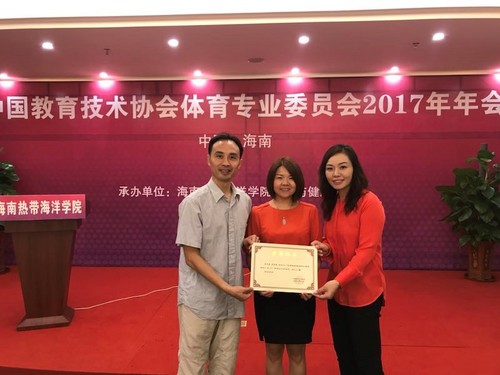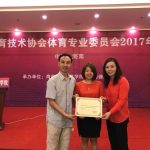 Li Zihao and Lei Si Man receive a first prize at the annual assembly of the Chinese Association for Educational Technology – Sports Professional Committee
Li Zihao and Lei Si Man receive a first prize at the annual assembly of the Chinese Association for Educational Technology – Sports Professional Committee
A paper titled ‘Dance Teaching on Mobiles’, jointly written by Li Zihao and Lei Si Man, two assistant professors from the University of Macau (UM) Faculty of Education, recently received a first prize at the annual assembly of the Chinese Association for Educational Technology - Sports Professional Committee (CAET – SPC).
The paper analyses how the use of technology, especially smart phones, can make dance teaching and learning more effective. The study found that students and teachers will ultimately benefit from using technology in the teaching process despite difficulties at the beginning. The study also shows that podcasting and blogging on smart phones deliver better learning outcomes than websites and virtual learning platforms, such as Moodle and Blackboard. The paper also provides an in-depth discussion on the confidentiality and various functions of mobile technology in dance teaching and learning.
Liu Meijin, secretary-general of the Assembly Special Committee and director of the Modern Education Technology Center at Beijing Sport University, praises the paper for being the first paper presented at the assembly on the use of technology in dance teaching since its establishment. She adds that the paper demonstrates effectively how to use internet technology in education. Liu encourages over 70 experts and scholars from mainland China, Hong Kong, Macao, and Taiwan to make use of technology in teaching and learning in order to increase the quality of higher education.
This year marks the 30th anniversary of the CAET. Li and Lei were invited to give speeches at the assembly on blended learning in sports education at higher education institutions. Li received the UM Teaching Excellence Award earlier this year.


